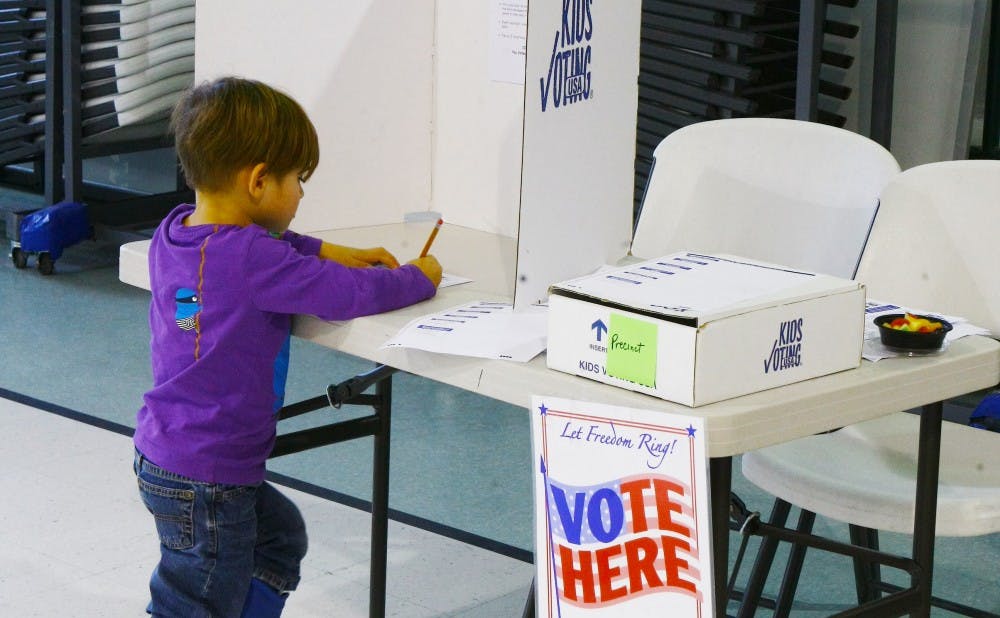Nearly 40% of Duke students voted in the last midterm elections—more than double the voting rate in 2014—but one Duke staff member thinks students can do better.
B.J. Rudell, associate director of Duke’s Center for Political Leadership, Innovation and Service, started Duke Votes for the 2018 midterm elections. The program aims to boost political engagement on campus by helping students register to vote, providing information about deadlines and voting dates as well as issuing photo IDs to comply with the new voter ID constitutional amendment starting in 2020.
“First and foremost, I want to make sure students feel empowered, have the resources they need and understand that Duke University cares deeply about their development as politically engaged people,” Rudell wrote in an email.
This election cycle, Duke Votes is beefing up its efforts. They are launching the “20 in ‘20” campaign, where students commit to registering 20 people to vote. They have also created the Duke Votes Coordinating Committee, which is composed of 10 upperclassmen, and launched the Duke Votes Ambassadors program, a group of 21 faculty and staff available to answer questions from students about voting.
Deondra Rose, director of research for POLIS, noted that youth voting has grown in popularity recently.
“Historically, rates of youth voter participation have been lackluster; but we have seen some striking progress in recent years,” Rose wrote in an email. “That progress has been driven, at least in part, by efforts to mobilize young voters through student-led efforts like Duke Votes.”
Since its inception, Duke Votes has largely been a student-driven organization, as Rudell explained he’s served mainly as an adviser. In starting the program, he “connected with a lot of student leaders” to see how Duke Votes could best promote voting. Together, they would “map out registration and get-out-the-vote strategies.”
Duke Votes is committed to making voting easier for students, despite new restrictions: last year, voters in North Carolina passed a voter ID law via ballot initiative, a requirement that will come into effect in 2020.
No ID is necessary to vote in the 2019 Durham municipal elections, which will be held Nov. 5.
Duke students from North Carolina can use their driver's licenses, and out-of-staters who registered to vote within 90 days of the election can also use their original license. But for students without a valid driver’s license or passport, POLIS is providing state-approved photo IDs to Duke students for free.
According to Rudell, 137 students have already requested the Duke Voter Photo ID, and they will be able to pick their IDs up later this semester.
He always encourages students to help Duke Votes “register other students to vote, create how-to videos for filling out registration forms, plan Duke Votes events, or collaborate in other ways.”
“We'll plug them into the campus-wide Duke Votes operation, which will formally kick off in January,” Rudell added.
Editor's Note: This article has been updated with the removal of a quote from Rudell that was not intended to be on the record.
Get The Chronicle straight to your inbox
Signup for our weekly newsletter. Cancel at any time.

